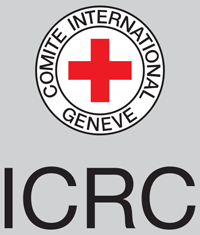NAIROBI
Twenty-five Ethiopian prisoners of war (POWs) were repatriated from Eritrea on Tuesday, according to a press release from the International Committee of the Red Cross (ICRC).
It said the operation took place, under ICRC auspices, at a crossing point on the Mereb river between the towns of Rama in northern Ethiopia and Adi Quala in southern Eritrea. "The repatriated POWs had been registered and visited regularly by ICRC delegates during the period of their captivity at Nakfa internment camp," the statement said. "They all expressed their wish to return to Ethiopia."
The Eritrean foreign ministry said it had "time and again" expressed its readiness to release and repatriate all Ethiopian POWs from the border war between the two countries, in accordance with the Algiers peace agreement and Geneva conventions. But, in a statement, it accused the Ethiopian government of "continuing to hinder the process". In this context, the Eritrean embassy in Nairobi described Tuesday's release as "significant".
The ICRC said that since the Algiers peace agreement was signed on 12 December 2000, it had organised the repatriation of 879 Eritrean and 678 Ethiopian prisoners of war. At the time of the agreement, the ICRC had registered and was visiting some 2,600 Eritrean POWs in Ethiopia and some 1,000 Ethiopian POWs in Eritrea.
Paul Conneally of the ICRC in Asmara told IRIN on Wednesday that the Red Cross was satisfied the releases were happening but, he said, "we urge the authorities of both countries to release all remaining prisoners of war as soon as possible".
Eritrea last released a batch of 24 POWs on 10 October 2001, while Ethiopia freed 23 Eritreans the following month. There had previously been a lull in the repatriation exercise.
In its press release, the ICRC said it would continue to assist future repatriations and reminded both countries of their obligations under the Geneva conventions to release all POWs.
This article was produced by IRIN News while it was part of the United Nations Office for the Coordination of Humanitarian Affairs. Please send queries on copyright or liability to the UN. For more information: https://shop.un.org/rights-permissions





